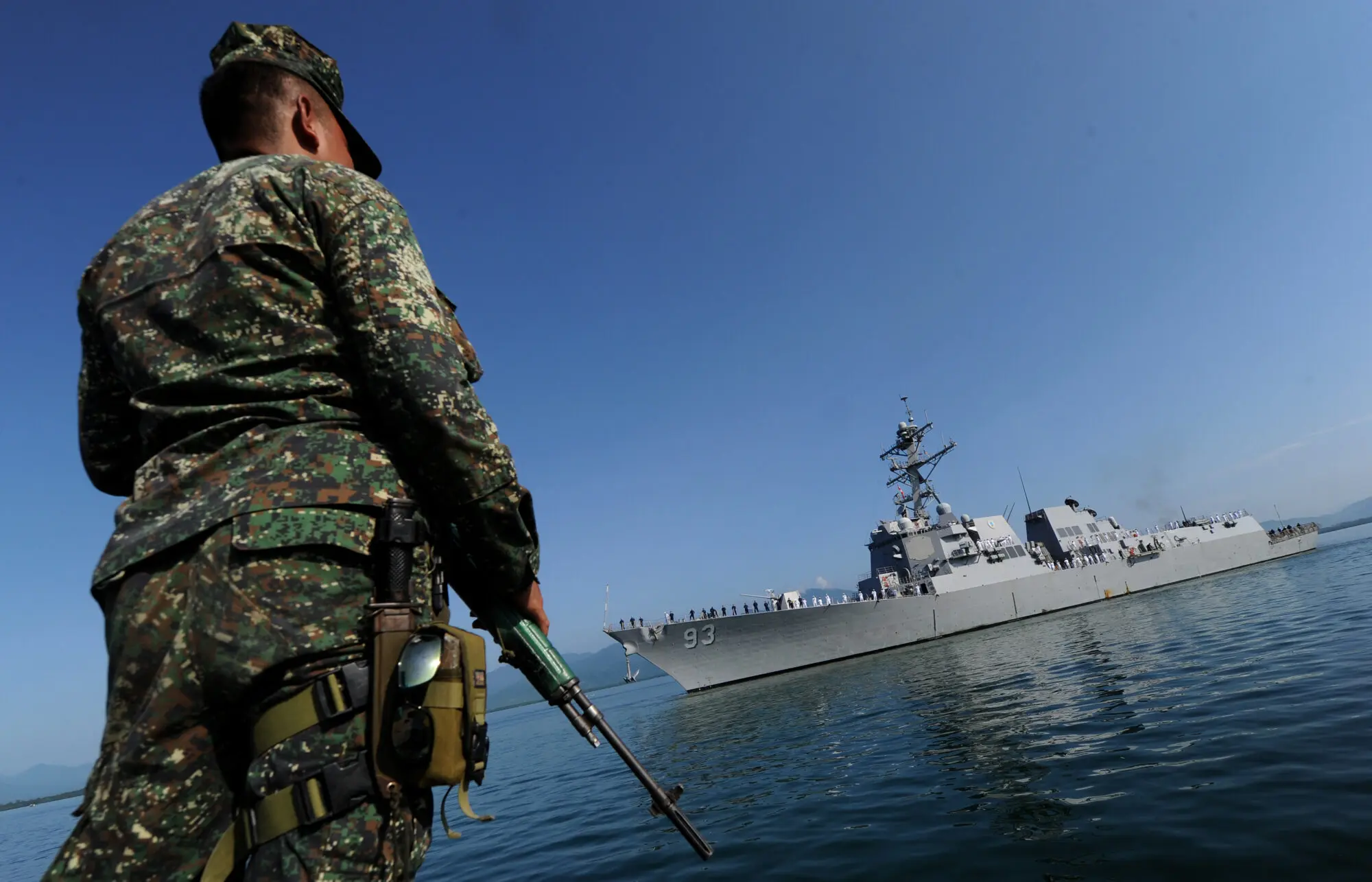
Missile destroyer USS Chung Hoon (DDG-93)
Saturday’s alleged near-collision between two warships in the Taiwan Strait, which separates mainland China from Taiwan, has the U.S. and China lobbing accusations at each other.
The island’s political future has become a bone of contention between the two hegemons. Beijing seeks to bring Taiwan under its rule, and in recent months especially, tensions have increased.
Footage of the incident, which happened on June 3rd, but which the Pentagon only released on Monday, June 5th, shows a Chinese ship cutting across the bow of the USS Chung-Hoon, an Arleigh Burke-class Aegis destroyer.
VIDEO: Pentagon releases footage it says shows Chinese Navy ship maneuvering in an 'unsafe manner' near an American destroyer transiting Taiwan Strait.https://t.co/9Q4g7wdysQ pic.twitter.com/03bB5JmRmk
— AFP News Agency (@AFP) June 5, 2023
Instead of opting to change its course, the American ship slowed down to avoid a collision, according to the Pentagon. While the Chinese warship, the Suzhou, a Type 052D destroyer with similar characteristics and combat purposes, remained at a distance of approximately 137 meters, U.S. Indo-Pacific Command condemned its maneuvering as having been done in an “unsafe manner.”
While hard to make out due to the strong winds, in the video a voice is heard, warning in English not to interfere with the vessel’s “freedom of navigation.”
At the time, the USS Chung-Hoon was patrolling the Strait together with the Canadian frigate HSMC Montreal. On Twitter, Canadian Armed Forces Operations called the joint operation a “routine transit.
#HMCSMontreal, with @USNavy destroyer USS Chung-Hoon, conducted a routine transit through the Taiwan Strait. 🇺🇸 and 🇨🇦 and partners operate for peace and security in the region.
— Canadian Armed Forces Operations (@CFOperations) June 3, 2023
@INDOPACOM @US7thFleet pic.twitter.com/1yBGLmHDm9
Routine or not, on Monday China’s Foreign Ministry defended the Suzhou’s brinkmanship.
During his regular press conference, spokesman Wang Wenbin blamed the U.S. for having “made provocations first,” to which the Chinese “only responded by handling the incident in accordance with relevant laws and regulations.”
The Chinese military’s actions, he said, were “necessary steps in response to the provocations by the country [the U.S.] concerned, adding these were “completely justified, lawful, safe and professional.”
Again not calling the U.S. by name, he concluded that China “resolutely opposes the country concerned stirring up trouble in the Taiwan Strait and is firmly determined to defend its sovereignty and security and regional peace and stability.”
It is the second such incident in a week between the two rivals.
In late May, U.S. Indo-Pacific Command alleged that a Chinese fighter jet had performed an “unnecessarily aggressive maneuver” in intercepting a U.S. reconnaissance aircraft.
China hit back, with its foreign ministry spokeswoman Mao Ning condemning the U.S.’ “long-term and frequent sending of ships and planes to conduct close surveillance on China,” which “seriously harms China’s national sovereignty and security.”
Later on Monday, White House spokesman John Kirby spoke of a “growing aggressiveness” on Beijing’s part, warning that “it wouldn’t take much for an error in judgment or a mistake to get made.” In such conditions, he added, “it won’t be long before somebody gets hurt.”
Kirby continued to defend the U. S.’ military presence in the sensitive territories, and that it would continue to stand up for the freedom of navigation in the air as well as in the sea.
Drawing a comparison between Beijing’s way of doing air and maritime intercepts and those of the U.S., he said that “when we feel like we need to do it, it’s done professionally.”
Beijing’s attempts at dissuading the U.S. from having its aircraft and vessels there, he added, would not succeed. “It’s not going to happen.”
A breakdown in Sino-American relations was also apparent during June 4th’s Shangri-La Dialogue, an annual defense and security forum that brings together global defense chiefs.
Chinese Defense Minister Li Shangfu’s disdain for the U.S. defense minister was evident. While engaging with European defense chiefs, as well as the EU’s top diplomat Josep Borrell, Li restricted himself to a mere shaking of hands with his U.S. counterpart, Lloyd Austin. No substantive dialogue between the two took place.
Beijing’s refusal to allow a meeting between the two defense ministers at this highly volatile time has its roots in Washington’s personal sanctions against the Chinese official.
In what was his first major address since his appointment in March, Li nonetheless stated that open conflict between the U.S. and China would be an “unbearable disaster” and that his country preferred dialogue.
The world, he added, was big enough for China and the U.S. to grow together. While the two nations had “different systems and are different in many other ways,” this “should not keep the two sides from seeking common ground and common interests to grow bilateral ties and deepen cooperation,” he said.
